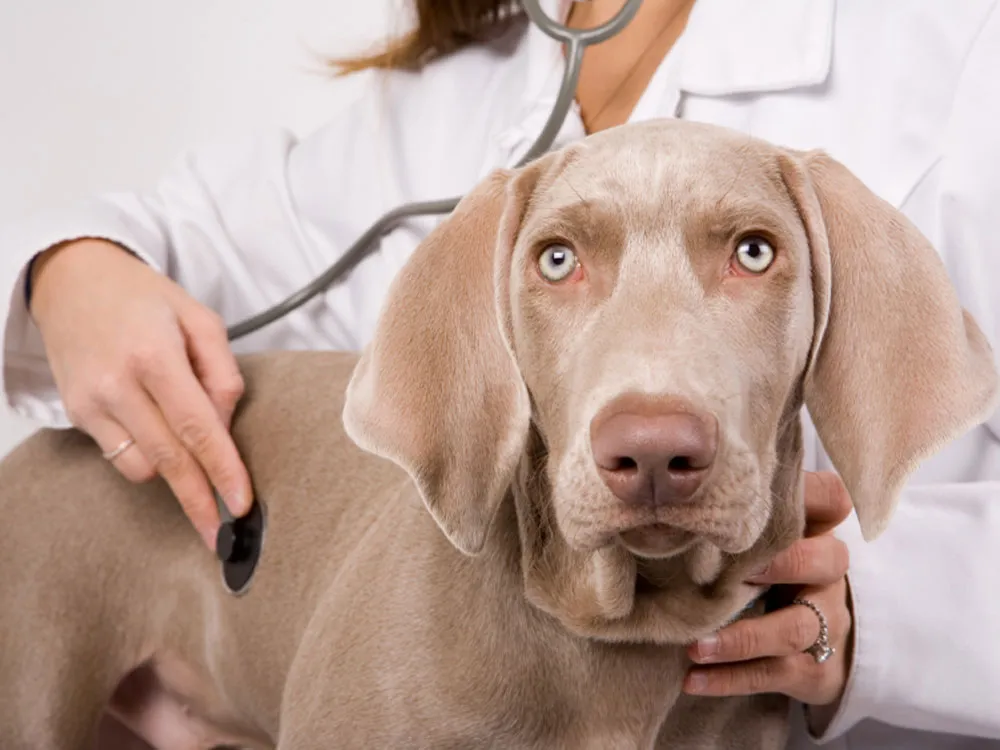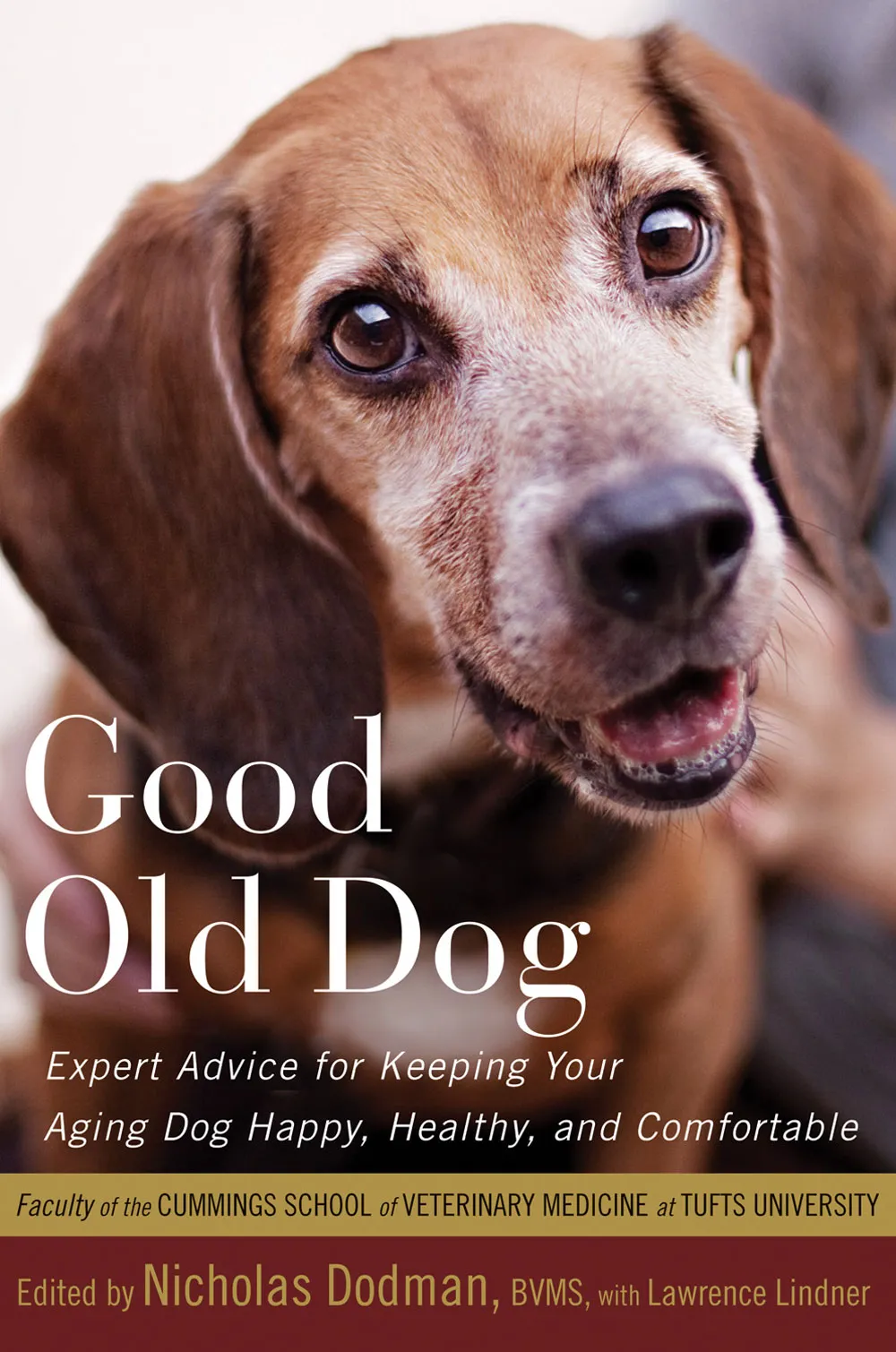 A thoughtful, wise elderly dog looking into the distance, representing the golden years of senior canines
A thoughtful, wise elderly dog looking into the distance, representing the golden years of senior canines
As dogs gracefully enter their senior years, the responsibilities of their care become more nuanced and demanding. Owners of aging dogs frequently face challenges such as managing canine dementia, addressing issues of incontinence, and navigating the emotionally complex decisions surrounding end-of-life care. Understanding How To Care For An Elderly Dog effectively means recognizing that old age is a natural stage of life, not a disease, and requires a tailored approach to ensure their comfort, happiness, and well-being.
To shed light on this critical topic, we turn to veterinary behaviorist Nicholas Dodman, who heads the Animal Behavior department at Tufts Cummings School of Veterinary Medicine and possesses decades of experience working with aging canines. Dodman, alongside other Tufts University veterinarians and writer Lawrence Linder, co-authored Good Old Dog: Expert Advice for Keeping Your Aging Dog Healthy, Happy and Comfortable. This valuable resource offers comprehensive guidance for dog owners.
In discussions about optimal senior dog care, Dodman emphasizes several key aspects, including appropriate diet and exercise, common diseases they may encounter, and the sensitive considerations involved in end-of-life choices. For a broader overview of managing an aging canine, explore our guide on how to take care of an elderly dog.
Understanding Your Elderly Dog’s Basic Needs
The foundational elements of care for an older dog revolve around acknowledging their changing physiology and providing an environment that supports their health and comfort.
Temperature Sensitivity: Protecting Against Extremes
One crucial aspect owners often overlook is an older dog’s heightened sensitivity to temperature fluctuations. As Dodman explains, “They’re really like older people. Older people are often the ones who are the victims of these freezing bouts or extremes of heat. They’re less able to thermoregulate.” This metabolic shift means senior dogs struggle to maintain a stable body temperature.
Consequently, it’s vital to protect them from extreme cold by providing blankets, warm coats, or ensuring they aren’t exposed to frigid conditions for too long. Similarly, hot weather poses a significant risk. Never leave an elderly dog outside, especially tied up, on a scorching day, as they can quickly dehydrate and become overwhelmed. Their reduced ability to cope with temperature changes can lead to dangerous situations.
Moderating Exercise for Optimal Health
While exercise remains important for senior dogs, it must be carefully moderated. Dodman advises caution because heart and lung function naturally deteriorate with age. Strenuous activities that were once easy for a young dog can become taxing or even harmful for an older one.
Instead, focus on gentle, consistent exercise, such as shorter, more frequent walks. Swimming can be an excellent low-impact option for dogs with joint issues, as it allows them to move without putting excessive strain on their bodies. The goal is to maintain mobility and muscle tone without overexertion, ensuring their physical activity remains a source of enjoyment and health, not discomfort.
Navigating Senior Dog Diets and Weight Management
When it comes to diet, the term “senior dog food” can be misleading. Dodman highlights that, unlike puppy food, there are no strict legal definitions or regulations governing the composition of “senior” dog food. This means the nutritional content can vary wildly between brands.
To ensure your dog receives appropriate nutrition, always consult your veterinarian before introducing any new diet. Your vet can recommend a food formula that meets your dog’s specific needs, considering factors like their activity level, existing health conditions, and ideal body weight.
Managing your senior dog’s weight is paramount, especially as extra pounds can severely impact joint health and mobility. Dodman emphasizes that “the large mass or weight of the dog will stress the joints further.” Achieving and maintaining a healthy weight can offer significant relief from joint pain. If your dog is overweight, explore strategies on how to help elderly dogs lose weight to improve their quality of life.
 Cover of the book "Good Old Dog: Expert Advice for Keeping Your Aging Dog Healthy, Happy and Comfortable" by Nicholas Dodman
Cover of the book "Good Old Dog: Expert Advice for Keeping Your Aging Dog Healthy, Happy and Comfortable" by Nicholas Dodman
Addressing Common Health Concerns in Older Dogs
Aging often brings with it a higher risk of certain health conditions. Being aware of these and understanding how to address them is a crucial part of how to care for an elderly dog.
Canine Cognitive Dysfunction: Recognizing the Signs
Older dogs can develop Canine Cognitive Dysfunction (CCD), which is often compared to Alzheimer’s in humans. Dodman notes that CCD presents a “constellation of signs that are not accounted for by any physical finding or disease.” Diagnosis is typically made by ruling out other conditions.
A helpful tool for identifying CCD is available on the Pfizer animal health website, which provides a chart of common signs. By taking the assessment and re-evaluating a month later, an increasing number of symptoms can strongly indicate that your dog is experiencing cognitive decline. Symptoms often include disorientation, changes in social interaction, altered sleep-wake cycles, and house-soiling. Early recognition allows for management strategies that can improve your dog’s quality of life.
Managing Arthritis and Joint Pain
Arthritis is another prevalent issue in older dogs, frequently stemming from underlying conditions present since their younger years. Dodman explains, “Most frequently, arthritis arises because of some condition that the dog had when it was very young which has now progressed.” A common example is hip dysplasia, where the hip joint’s ball and socket don’t fit together properly. Over time, this poor congruity leads to osteoarthritic changes, visible on X-rays, causing progressive pain.
Effective management often involves a multi-faceted approach, including maintaining a healthy weight, providing joint supplements (such as glucosamine and chondroitin), anti-inflammatory medications prescribed by your vet, and physical therapy. Creating a comfortable home environment with orthopedic beds and ramps can also significantly alleviate discomfort and improve mobility.
Making Difficult Decisions: End-of-Life Care
Perhaps the most challenging aspect of how to care for an elderly dog is confronting end-of-life decisions, especially when a pet faces a terminal illness.
Weighing Treatment Options for Terminal Illnesses
Cancer, for instance, affects a significant number of older dogs, with half of all dogs over 10 years old developing the disease. Deciding whether to pursue aggressive treatment for cancer or other terminal illnesses is a deeply personal and often agonizing choice for pet owners. Dodman outlines several factors to consider: the financial cost of treatment, the dog’s potential quality of life post-treatment, whether the treatment itself will be painful, and the realistic extension of their life.
He advocates for treatments that offer a good quality of life extension without undue suffering. “If, for example, you had a relatively noninvasive procedure that wasn’t going to cause your dog a lot of pain, and it was going to buy him an extra six months and you could afford that treatment — and those six months were quality life — then why not, if you can afford it?” Conversely, he questions prolonging an existence filled with chronic pain, describing it as “a highway to nowhere” if the dog has no real prospect of regaining enjoyment from life. In some cases, supplemental nutrition might be considered; for instance, you might wonder can I give my elderly dog Ensure to support their strength. Always discuss such options with your veterinarian.
When to Consider Euthanasia: Quality of Life
Eventually, there may come a time when your dog’s behavior indicates that it’s time to say goodbye. Dodman emphasizes the importance of listening to owners’ observations and carefully assessing the dog’s condition.
“If they have reached a point where they have given up — they’re basically lackluster, not enjoying life, not playing, not interacting, haven’t responded to any therapies, losing interest in food and social interactions — and nothing you can do can bring them back, you have to think very seriously about what is the quality of life.” This decision is incredibly difficult, but prioritizing your dog’s comfort and dignity above all else is the ultimate act of love.
Expert Insights for Senior Dog Owners
Beyond specific ailments, Dr. Dodman offers general advice that helps shape a holistic approach to senior dog care.
Estimating Your Dog’s Age in Human Years
Understanding your dog’s equivalent age in human years can help adjust expectations and care routines. Dodman provides a simple guideline: “The smaller dogs live longer, and very large breeds live quite a short life span. So if you take an older dog, you might want to multiply by 8 or so to come up with its human equivalent years and for small dogs — say between 10 or 15 pounds — that number drops to 6. So you multiply by 6 to come up with its human equivalent.” This general rule helps contextualize their aging process.
The Role of Table Scraps in an Elderly Dog’s Diet
While many owners enjoy sharing food with their pets, especially older ones, moderation is key. Dodman admits his own dog gets table scraps but cautions, “you can’t do this too much. It has to be regulated, especially if the dog is on some diet.” Commercial dog food is typically well-balanced to meet all carbohydrate, fat, protein, and additive requirements. Introducing too many human foods can unbalance this equation and lead to unwanted behaviors like begging. Always ensure any table scraps are safe for dogs and given sparingly.
 Veterinary behaviorist Dr. Nicholas Dodman, an expert in senior dog care, discussing challenges of aging pets
Veterinary behaviorist Dr. Nicholas Dodman, an expert in senior dog care, discussing challenges of aging pets
Conclusion
Caring for an elderly dog is a profound commitment that requires patience, informed decisions, and a deep understanding of their evolving needs. From adapting their environment to managing chronic conditions and making compassionate end-of-life choices, every step contributes to their comfort and happiness during their golden years. Veterinary behaviorist Nicholas Dodman’s expert advice underscores the importance of a proactive approach, regular veterinary consultations, and a focus on maintaining their quality of life. By embracing these principles, you can ensure your beloved senior companion experiences a peaceful, dignified, and loving transition through this final chapter of their journey.
References
- Dodman, Nicholas. Interview by Dave Davies. Fresh Air, NPR. November 22, 2010.
- Dodman, Nicholas, et al. Good Old Dog: Expert Advice for Keeping Your Aging Dog Healthy, Happy and Comfortable. Houghton Mifflin Harcourt, 2010.
- Pfizer Animal Health. “Canine Cognitive Dysfunction Rating Scale.” (Referenced in original article, specific link
http://www.cdsindogs.com/CDSInDogs.aspx?drug=CC&country=US&species=OO&sec=210is not active anymore, general reference to Pfizer Animal Health website retained for credibility.)
